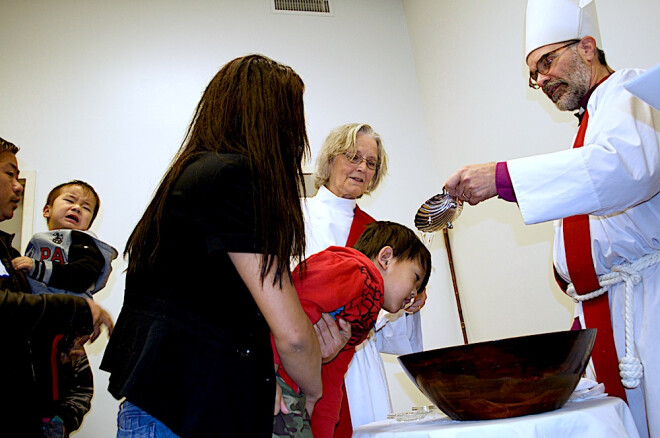Why Babies? Which Confirmation?

At the heart of baptism, then, is identification, namely with the Lord Jesus, so that we die to sin with Him so that we might live with Him in the hope of the resurrection. And this identification looks for a person like turning, called ‘conversion,’ from life lived on our own terms, to life lived to God in Christ.
But wait a minute -- many of those baptized are infants, who can’t say ‘yes’ or ‘no’ to anything. How then are we to understand this? Shouldn’t we wait until they are adults, when they can make such a momentous commitment on their own? We might reply that baptism is the way in which, liturgically, we express the identity of the Church as a whole as conformed to her Lord. This is true enough, but just the same it has to do with the individual involved, who is, as we said, a baby! We might also point to the history, where the reality of original sin and the fear of infant mortality led to the widespread practice in the early Church. But here too we have to explain the lack of volition in the baptizand.
Let us start with this affirmation: the whole of our selves, and the whole of our lives, are to be offered to our Lord, whose it already is. This involves at least three elements here: God’s prior call, its recognition by the Church, the individual’s ‘yes’ to that call, the deeper recognition of the reality and implication of that claim on our lives. You can see that this implies a process, that each element is important and all depend on one another. So we might imagine a person baptized as an infant, formed in the Church, deciding to affirm what is already, and realizing in renewal that full depth of what has happened. Initiation is one, since the initiator, Christ, is one, His saving work sufficiently one, and our life, for all its seasons, is one. But it has different kinds of expressions which imply each other, what happens sacramentally, educationally, and personally are interconnected.
What does this then say to us about the sacramental act of confirmation? Not that baptism is God’s ‘Yes’ and confirmation ours, since we are enabled to say ‘yes’ by divine grace. It is not that baptism is incomplete, but rather that its depths, its implications, its sprouting, take place over time. We can see how grace, formation, Yes, and exploring the depths all seemed to take place in closer relation to one another in the early Church. But we undergo the same process, though often in a more dispersed way.
Read the confirmation service and think about how it is part of the ‘baptismal process,’ that is, the lifelong death to self and new life in Christ.


